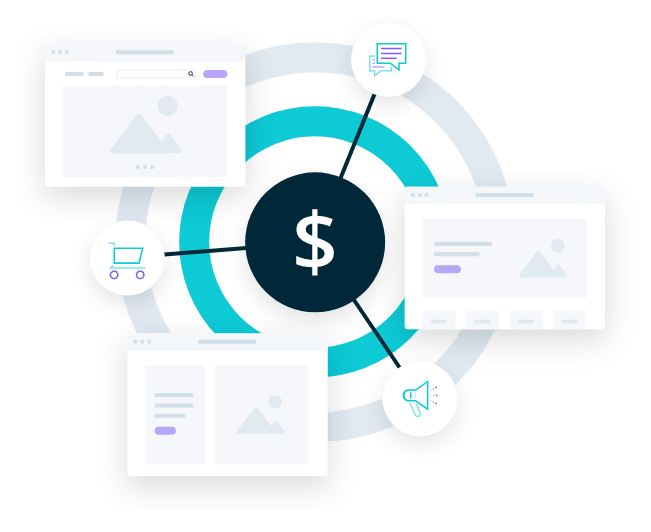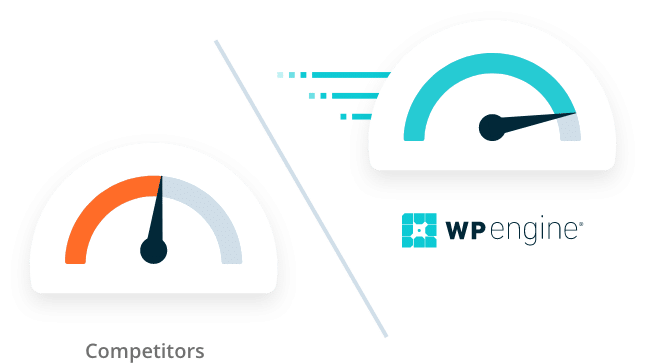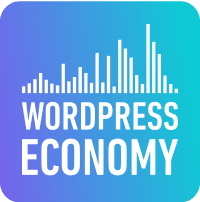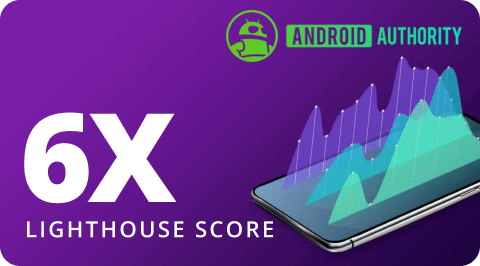
Want Better Holiday Sales? Prep for Cyber Weekend Now
Get ready for the holiday rush with key upgrades to your WooCommerce store—from first-click to checkout and beyond.
Cyber Weekend is just around the corner, and it’s expected to be another busy one, with holiday eCommerce sales projected to reach $235 billion—an increase of more than 15% from 2021!
This anticipated surge in online shopping represents a massive opportunity for digital storefronts of all sizes, especially those that are prepared for the higher traffic and ready to serve every customer with a seamless shopping experience.
See how your WooCommerce store runs better on WP Engine
But if your eCommerce site isn’t quite ready for an influx of online customers, now’s the time to prepare.
With Cyber Weekend fast approaching, use the following tips to test your site, upgrade where needed, and roll out the red carpet for your online shoppers!

Building an End-to-End eCommerce Journey
First impressions count, and that rings especially true for eCommerce sites.
Today, one in four customers will leave your site if it takes longer than four seconds to load, and lagging performance, confusing product information, and wonky cart functionality will all increase the already-high chances of cart abandonment.
Not only that, but 64% of shoppers say they’ll take their business elsewhere next time if they have a poor experience on your site.
But the opposite is true when it comes to fast sites that remove friction from the eCommerce customer journey and provide all shoppers with crisp content, powerful search functionality, and a seamless checkout process.
By taking a wider view of your eCommerce site(s) and the larger customer journey you’re providing—from discovery and consideration to intent, purchase, and repeat engagement—you’ll be able to zero-in on key areas for optimization.
You can start with these customer-centric questions:
- How long do your site users typically wait from first click until a page has fully loaded?
If it’s longer than two or three seconds, you may be missing out on higher conversion rates.
- What functionality do you have in place to better accommodate product searches on your site?
Customers who are able to quickly find what they’re looking for are more than twice as likely to complete a purchase.
- What’s the experience like when customers add items to their cart, continue shopping, or wish to quickly check out?
Cart Fragments and other elements including caching could be creating bottlenecks on your WooCommerce storefront.
All of these questions highlight crucial points in the eCommerce buyer’s journey that can be make-it-or-break-it moments for your site.
While you can optimize each area on your own, WP Engine’s eCommerce plans deliver stores that are up to 37% faster, with up to 18% higher conversion rates, all on a platform that’s optimized for WooCommerce.
That means an immediate upgrade for your eCommerce sites and your buyer’s journey. With high-performance hosting, proprietary caching, enhanced cart functionality via Live Cart, and Instant Store Search, which delivers more relevant search results up to 10x faster, WP Engine provides a better WooCommerce experience for all of your eCommerce customers.
Find out more about WP Engine’s WooCommerce-optimized hosting plans—including our 60-day money-back guarantee—here, or speak to a representative now.

Testing, Testing, 123
Site performance, and specifically page speed, are critical elements that support the entire eCommerce experience—70% of consumers say page speed impacts their willingness to buy from an online retailer.
The fastest eCommerce sites (with pages that load in two seconds or less) do indeed see some of the highest conversion rates, whereas conversions begin to drop by an average of 4% with each additional second of load time.
That means the extra seconds your audience has to wait could be cutting into your bottom line, but how do you know where you stand?
Testing your sites and the campaigns you plan to run during the holiday rush will allow you to make tweaks where needed to ensure things run smoothly once traffic picks up.
Load testing, for example, is a common approach that simulates real-world load on your site to help you assess things like scaling capabilities, security risks, automatic code deployment, and target tracking, among others.
Proper load testing will give you a clearer idea of how many people can visit your site at once, but before you dive into a load testing project, check with your hosting provider to make sure it’s approved (or they might think your site is being attacked by bots and block it).
You can find out more about load testing in this ebook, and if you’re looking for additional site testing options, you can find a wide list of free tools for testing WordPress site performance here.

Less Searching, More Finding
Relevant content starts with the content itself, but making sure your audiences are able to find the content they’re looking for is key to improving your eCommerce conversions.
43% of online shoppers go directly to a website’s search bar, and consumers who use search are 2.4x more likely to buy when they find what they’re looking for.
Searchers also drive more revenue, spending 2.6x more across mobile and desktop compared to shoppers who don’t use search.
So how are you meeting your customers’ search expectations? While native WordPress search functionality can be limited, there are ways you can improve the search functions on your WooCommerce site(s).
Instant Store Search, for example, brings the power of ElasticPress to your WooCommerce store, supercharging the online shopping experience with faster, more relevant search results and helpful “did you mean?” assistance (as well as autocorrect and near-spelling suggestions).
By identifying and intercepting search queries and offloading them to a separate server, Instant Store Search provides a growing number of WP Engine’s eCommerce customers with faster site speeds and higher conversion rates.
And Instant Store Search is faster than ever, as queries are now routed through a dedicated API, separate from WordPress, which returns results more than 10x faster than before.
For high-traffic eCommerce stores and other sites where search speed is critical, conversion rates can experience significant fluctuations based on the difference of only a few milliseconds.
Using tools like Instant Store Search, those fluctuations can be greatly reduced, ensuring shoppers on the most highly-trafficked sites consistently experience a fast, relevant search (and site) experience. Check out the video below to find out more:
Instant Store Search is included with all of WP Engine’s managed WooCommerce plans, which combine high-performance hosting, proprietary caching for WooCommerce, and WP Engine’s industry-leading platform performance to help you provide the best online shopping experience to all of your customers.

Give Checkouts a Second Look
Once your site visitors find what they want, it’s also important that you remove all possible blockers between them and the “Buy Now” button.
With cart abandonment rates hovering around 70% (and even higher—85%— for mobile users), optimizing cart functionality in addition to the overall checkout process is extremely important for the success of your sites.
But cart abandonment has many causes, and although things like shipping costs and taxes play a significant role, slow site speed is also a major driver.
For WooCommerce stores specifically, the use of cookies to bypass cache can affect static pages, even after a shopper has added an item to their cart. This can create potential slowdowns, as static content served without cache can more than double a page’s load time!
To remedy this issue, WP Engine has implemented a new way of handling cache exclusions that detects when dynamic content is being served. Our proprietary caching system, EverCache®, is now able to circumvent the cookies used by WooCommerce and optimize cache delivery for static pages.
EverCache® also automatically bypasses cache when it will break functionality, including cart functionality, on checkout pages, or for authenticated shoppers.
The results have been exceptional, with more of our eCommerce customers’ cached pages being served, especially for visitors further down the sales funnel.

In addition to caching, WooCommerce Cart Fragments can also create issues for eCommerce websites.
While they provide needed cart functionality (including the “add to cart” action your customers use when selecting an item on your site), Cart Fragments are also AJAX requests that can quickly add up—and slow your site down.
To assist with the Cart Fragments dilemma, WP Engine has introduced Live Cart, which optimizes the WooCommerce Cart Fragments requests that make your cart dynamic so they only run when they’re needed.
Built into all eCommerce plans, Live Cart eliminates the Cart Fragment AJAX call from occurring at unnecessary times, and improves the scalability of cart and page speeds across your entire site, all without losing dynamic cart functionality.
When a customer adds an item to their cart, Live Cart loads pages 1.5 seconds faster (on average) than the default Cart Fragments script, and it helps keep your site from dropping connections under continuous load.
These benefits and more will be especially well-received during high-traffic sales events like Cyber Weekend. As customers flock to your site and peruse your catalog of products, you’ll rest easy knowing they haven’t come this far only to abandon their carts.
Spend This Fall on the Stuff That Matters
You could spend the best part of fall working on all this stuff, or you could find a smarter way to Woo. Hosting your eCommerce sites on WP Engine’s WooCommerce-optimized eCommerce platform will provide you with the platform and the performance you need to win more sales this Cyber Weekend and beyond!
View our eCommerce plans here, or speak to a representative to find out more.











Start the conversation.